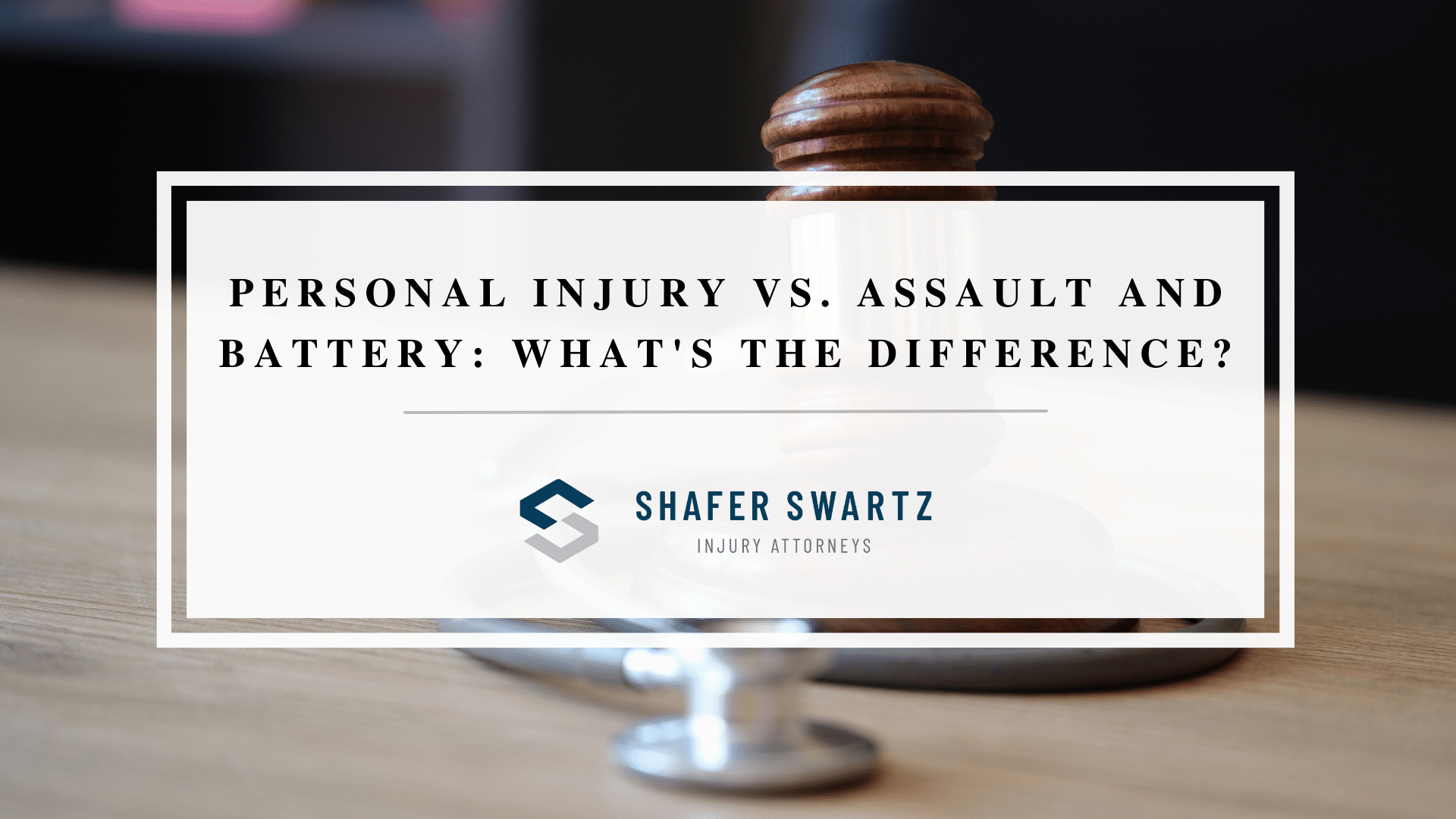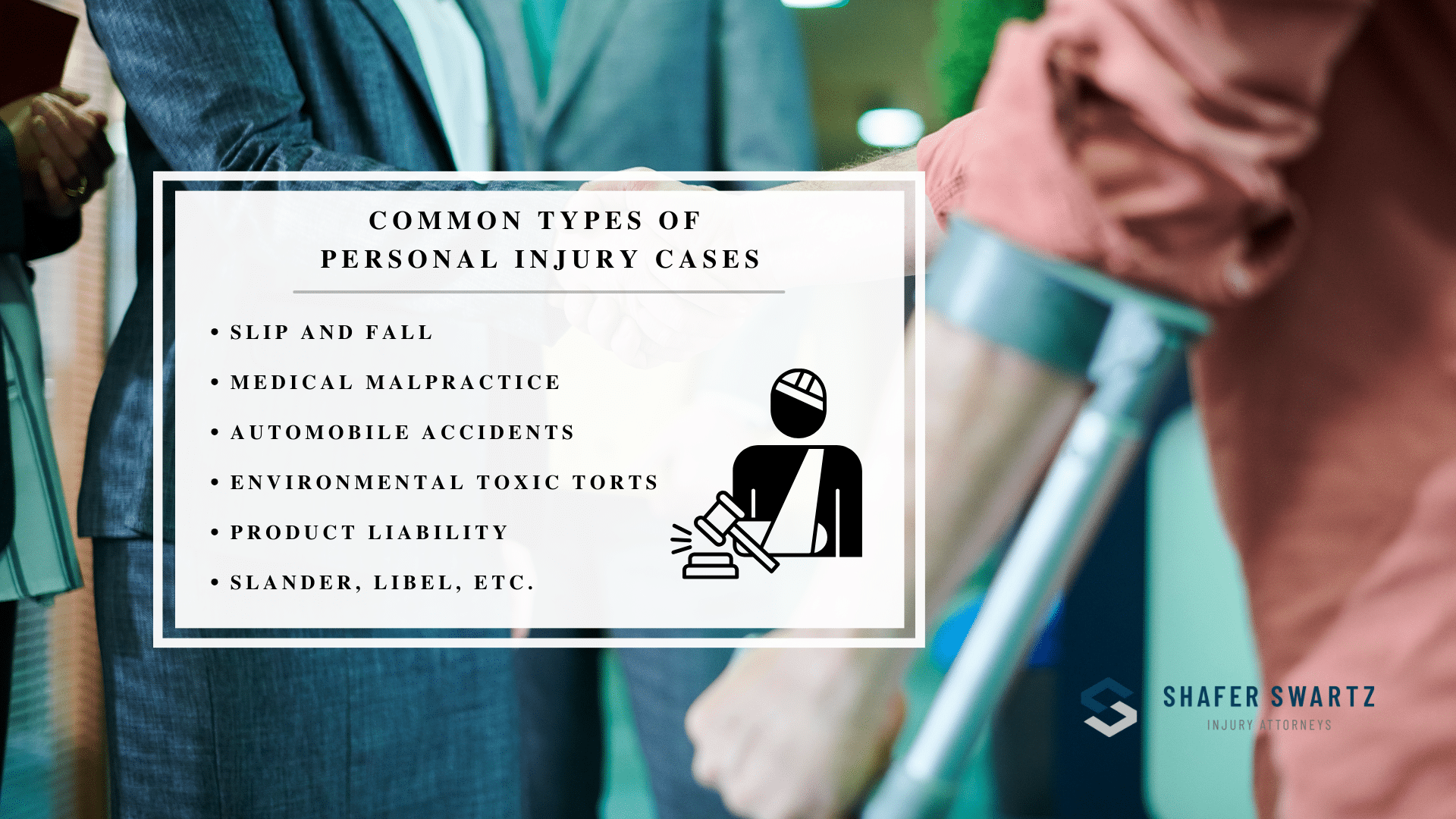Understanding the definitions and differences between personal injury and assault and battery will help you protect your rights and know your legal options. If one option fails, you will be better prepared to choose an alternative. If a defendant charged with assault and battery is acquitted, you’ll know there’s still hope. You can seek damages and compensation by filing a personal injury assault or civil lawsuit. Hence, you must know the law to defend your rights.
In this article, our Muskegon injury lawyer will explain the definition and key differences between personal injury vs assault and battery and how these statutes can help you get the justice you deserve.
Importance of Understanding the Distinction
By understanding the differences and definitions, you can better protect your rights and seek justice. This section will explain each legal term, when to use it, and its legal procedures.
What Is Personal Injury?
Personal injury cases are civil cases filed when someone causes you harm. Personal injury cases seek damages rather than criminal punishment. Furthermore, a successful personal injury case will award economic and non-economic damages, including medical bills, lost wages, and pain and suffering. Common types of personal injury cases include:
-
- Slip and fall
- Medical malpractice
- Automobile accidents
- Environmental toxic torts
- Product liability
- Slander, libel, etc.
Negligence or unintentional harm is the foundation of a personal injury case. Negligence has four essential elements:
-
- Duty
- Breach of that duty
- Direct causation
- Damages
To file a personal injury case in Michigan, here are some of the steps:
-
- Get medical attention for your injuries and make sure to document them.
- Investigate your accident and injury. This step is crucial because it establishes direct causation between your injury and the incident or defendant’s action. To avoid missing anything, you may need a Muskegon injury lawyer.
- Gather police reports, medical records, photos, witness statements, and incident-related information.
- Seek damages from insurance companies. If the other party or the insurance company refuses your claim, take your complaints to court by filing a lawsuit.
- Seek legal assistance from a skilled Muskegon injury lawyer to get your due compensation.
- Note that personal injury cases in Michigan have a three-year statute of limitations.
What Is Assault and Battery?
If someone tries to punch and scare you without touching you, that’s assault. It’s a display of intent to harm someone. Meanwhile, battery occurs when the assault continues and causes physical harm or offense. Assault and battery are tied so closely that they are usually charged together.
In an assault and battery case, the legal foundation is intent. The defendant intended to intimidate or harm with violence. Some types of assault and battery in Michigan are:
-
- Simple assault and battery
- Aggravated assault and battery
- Domestic assault and battery
- Felony assault and battery
You start a criminal assault and battery case the same way you start a personal injury case, seeking medical help and gathering witnesses and evidence. The difference is that you need law enforcement’s participation.
After the police arrest the offender, a local prosecutor decides what to do. This means it’s not up to you if the offender gets charged. The prosecutor decides whether the offender will be jailed, fined, charged with a complaint, sent to a jury, or dismissed.
In Michigan, simple assault and battery are considered misdemeanor offenses with a jail sentence of up to 93 days and a fine of around $500.
Key Differences Between Personal Injury and Assault and Battery
In this section, we’ll go through the key differences between personal injury vs assault and battery:
Intent and Negligence
According to Michigan Law, the basic elements and definitions of terms are:
| Basic Element | Definition According to Michigan Law | |
|---|---|---|
| Assault | Intent | “an act that would cause a reasonable person to fear or apprehend an immediate battery” |
| Battery | Intent | “any use of physical force against another person to harm or embarrass” |
| Personal Injury | Gross Negligence | “conduct so reckless as to demonstrate a substantial lack of concern for whether an injury results” |
Types of Harm
The terms also differ in the types of harm. Here’s a glance at their differences:
| Types of Harm | |
|---|---|
| Assault |
|
| Battery |
|
| Personal Injury |
|
Compensation Available
Here are some of the compensations and penalties for these respective types of cases:
| Compensation or Penalties | |
|---|---|
| Personal Injury |
|
| Assault and Battery |
|
Understanding Intentional Torts
If you’re unsatisfied with the outcome of your assault and battery case, you can file for damages and compensation under “intentional tort.” It’s a personal injury where you can seek economic and noneconomic damages for the battery and assault you suffered. To assist you better, consult a personal injury attorney with assault and battery expertise.
We Make It Right for You
Protect your rights by learning the law from a skilled Muskegon injury lawyer. Instead of searching for “injury lawyer Muskegon” or “personal injury attorney assault and battery” online, find a qualified lawyer. Trust our team at Shafer Swartz PLC to help you get justice if you’ve been assaulted and battered. We sympathize with your situation and understand your needs. So, contact us here or call (231) 722-2444 for an appointment.


